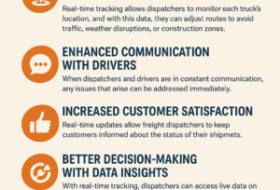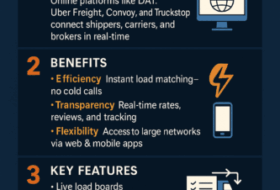What Is a Freight Broker?
A freight broker is a person or company that acts as a middleman between shippers and carriers, facilitating communication and coordinating the transportation of goods. Freight brokers negotiate rates and plan routes on behalf of shippers, and help carriers optimize their routes and increase profits. They make a profit by charging a commission on the difference between the freight rate paid to the carrier and the rate paid by the shipper.
What Is Dispatcher?
A dispatcher is a person or company that manages the receipt and transmission of information about the location of cargo on the road. Dispatchers may be employed by carriers or contracted to them, and often help smaller carriers find loads using load boards and brokers. They coordinate movements to ensure on-time delivery of goods and use a transport management system to optimize fleet movements. Dispatchers represent the interests of the carrier and receive a percentage of the carrier’s rate as payment. They are not licensed or regulated.
Comparing a Freight Broker & Dispatcher
Yes, there are several differences between freight brokers and dispatchers. Freight brokers are licensed and regulated by the Federal Motor Safety Administration (FMCSA), while dispatchers are not. Freight brokers negotiate rates and plan routes on behalf of shippers, while dispatchers represent the interests of the carrier and help them find available loads. Freight brokers make a profit by charging a commission on the difference between the freight rate paid to the carrier and the rate paid by the shipper, while dispatchers receive a percentage of the carrier’s rate as payment. Freight brokers invoice the shipper and pay the carrier, while dispatchers do not deal directly with the shipper. Dispatchers may also provide carriers with administrative support, while freight brokers do not.
Dispatchers Represent the Carrier.
The Goal of the Freight Broker is to Grow the Business
Dispatchers are not Licensed
Brokers Invoice the Shipper and Pay the Carrier–Dispatchers Deal with Carriers
Dispatchers Do a lot of the Admin Work for Carriers
Growth + Change = Opportunity! How are you going to capitalize on the opportunity as a freight broker, agent, dispatcher or box truck carrier!?
Check out our courses for becoming a Freight Broker, Agent or Freight Dispatcher! As always reach out to us with any questions we are here to help 7 days a week!








